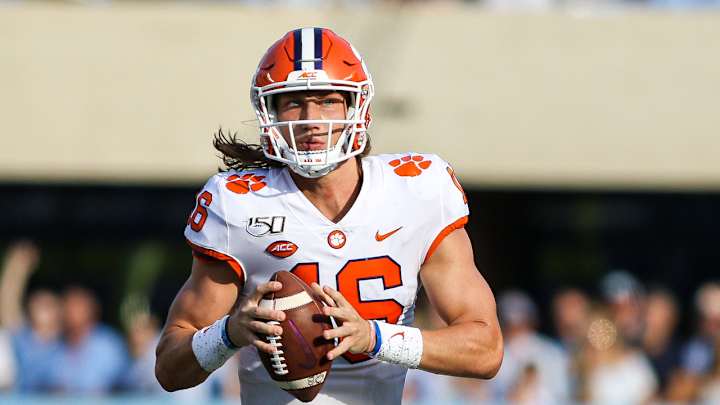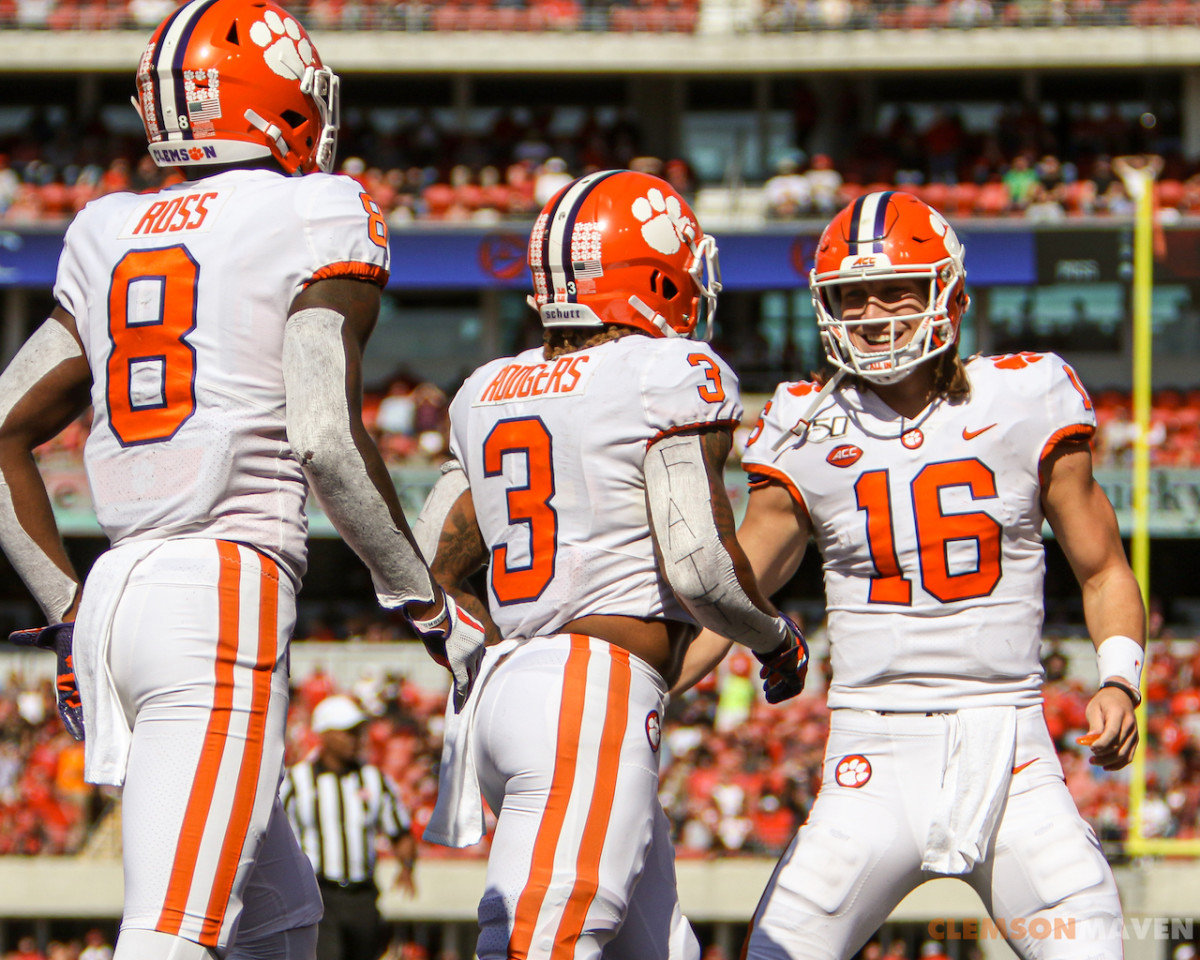Trevor Lawrence Finds Voice, Platform For Change

Trevor Lawrence doesn’t “stick to sports.”
Between the Black Lives Matter movement and raising money and awareness for COVID-19 relief, the face of one of the nation’s top programs and arguably all of college football is trying to lead in a way that transcends anything he’s done on the football field.
Clemson’s star quarterback hasn’t shied away from being outspoken and out front of social injustice and racial issues.
In This Together ❤️ pic.twitter.com/nQWtVASjGN
— Trevor Lawrence (@Trevorlawrencee) June 11, 2020
“The platform I have, it's important for us to stand up for something,” Lawrence said. “It's easy to stay quiet because you know some people don't want to make people mad, but my thoughts on it ... you know those aren’t the kind of fans, followers, whatever, you want if that makes them mad when you stand up for equality.”
On Saturday, Lawrence will be standing side-by-side with his Black teammates as one of the lead organizers of an on-campus peaceful demonstration to stand against police brutality and racism following the death of George Floyd at the hands of Minneapolis police officer Derek Chauvin, who has since been charged with second-degree murder and manslaughter. In a movement that’s sparked the nation, Lawrence wasted little time making his thoughts known via social media.
“There has to be a shift in the way of thinking,” Lawrence wrote on his Twitter account May 29. “Rational must outweigh irrational. Justice must outweigh injustice. Love must outweigh hate. If you put yourself in someone else’s shoes and you don’t like how it feels — that when you know things need to change.”
Lawrence added then that he was “siding with my brothers that deal, and continuously deal, with things I will never experience.”
While he was publicly applauded for his stance, he said there was “something in your gut” telling him he needed to do more.
Behind the scenes, Lawrence listened to his Black teammates and worked toward putting together Saturday’s march with Darien Rencher, Cornell Powell and Mike Jones Jr.
“Thing is, realizing I do have a part to play, and even though these issues don't directly affect me, it does. It does affect me because this affects the world I'm living in,” Lawrence said. “I want my kids to one day live in a world where everyone is equal. They can have best friends that are black, white, you know, whatever color.”
His decision to speak up has had a positive effect on his teammates that goes well beyond the playing field. Lawrence has gone from a shy freshman winning a national championship in 2018 to a key, outspoken leader on and off the field while using his platform for change.
“It was big for me seeing (Lawrence and other white Clemson players) wanting to be educated and wanting to understand ... my pain and my image, teammates' pain, and having them use their platform and speak out,” Powell, a senior Clemson receiver, said. “It was really big so that you know it is more than football. (It’s) more than just a sport to them, and they really care about me and how my life is affected by all this.”
While Lawrence has been called the next great NFL quarterback prospect and is likely the top pick in the 2021 draft, there’s much more to a still 20-year-old football player who’s thrown for 6,945 yards and 66 touchdowns in two seasons.
Lawrence grew up in Cartersville, Ga., a town with a population of about 20,000 located 50 minutes northwest of Atlanta. He’s witnessed “prejudices and stereotypes” for years, so given the platform as one of the most recognizable figures in all of college sports, Lawrence has chosen to do something about it.
“I think until this point that's just been easier to ignore,” Lawrence said. “It doesn't settle with you right and you're like, ‘No, that's just not right that someone automatically assumes something,’ but it's gotten to the point now ... where everyone's been forced to really assess everything and look inside themselves and think, 'This is a real issue. What am I? How am I affected.’ This issue as far as being a part of it and also how can I change, so that's what I've done, too.”
It does affect me because this affects the world I'm living in." —Clemson QB Trevor Lawrence on social injustice, police brutality and racism
Back in March, Lawrence and his girlfriend Marissa Mowry started a GoFundMe page to help fund COVID-19 relief for friends and family. Because of NCAA rules, Clemson originally had Lawrence shut down the page so that he avoided any violations, but his large presence in the sports world helped lead the NCAA to alter its rules to allow him and other student-athletes to help make a difference for causes.
“He’s really, really challenged himself and I’m proud of him,” Clemson head coach Dabo Swinney said. “He’s a great leader.”
Lawrence’s freshman season in 2018 at Clemson was as much a learning experience as it was successful and helped shape who he is today. He learned what fame was like, having fans flock to him wherever he went. It made Lawrence learn to balance finding time for himself and family and friends while also understanding with his position in sports, he has a different role to assume.

“It’s hard to do what you want, but it’s a blessing and I’m just trying to use my platform the best I can,” Lawrence said last year. “Sometimes you think about it, ‘I kind of wish I could just go out and not have anyone come up to me and just do my own thing,’ but it’s part of it. I chose to do this. (Football) is something I love, so it’s part of it.”
And he’s far from done trying to use his status for positivity. One of his goals this offseason was to become a better leader to his teammates, be more outspoken and be more of an example.
Heading into his junior season, and likely last in college football, Lawrence is doing just that while still learning the impact athletes can make and why it’s important to not just have a voice, but share it.
“As humans, we're entitled to what we believe and what we think is right, and I think that even though what we do is, you know, it's entertainment, this work we play,” Lawrence said. “We still have values and beliefs and as any human should want to do, you want to make things right that are right and that's really where we're coming from.”
